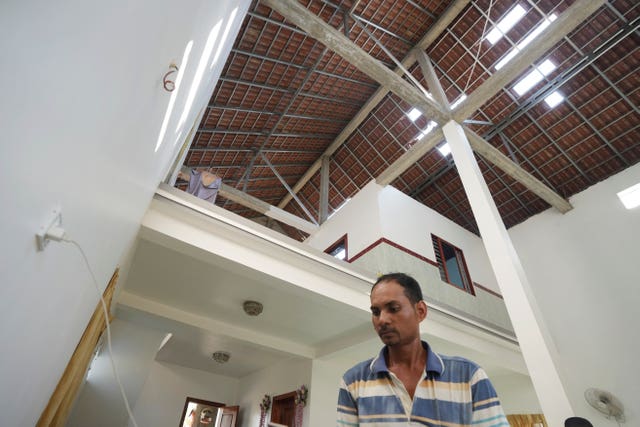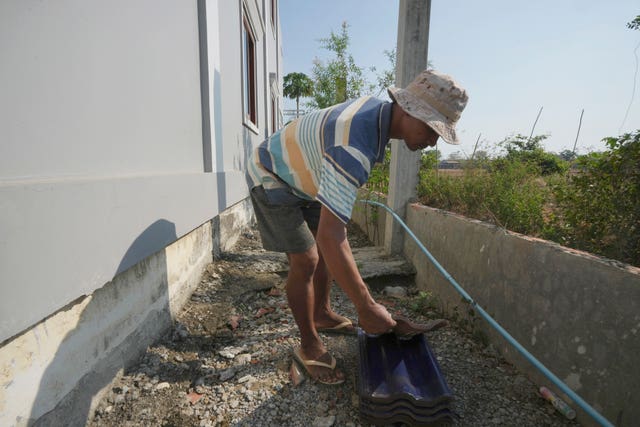
A funeral has been held for 20 soldiers who died at an army base in south-western Cambodia in a huge explosion of stored munitions that also injured several others and damaged nearby houses.
There has been no public explanation of what caused the blast at the base in Kompong Speu province on Saturday, though there were no suggestions it was triggered deliberately.
Defence minister Tea Seiha, representing Prime Minister Hun Manet, presided over the Buddhist funeral ceremony on Sunday which was attended by relatives of the victims and fellow soldiers.
Cambodian flags covered the wooden coffins.
A villager living nearby said he had never heard such a loud explosion before.

Chim Sothea said: “When the explosion happened, I was fixing my house with some construction workers.
“Suddenly there was a loud explosion, causing my house to shake and breaking tiles on my roof. They fell down but luckily they didn’t fall inside the house.”
Images showed several badly damaged buildings on the base, at least one with its roof blown off, and soldiers receiving treatment in hospital. Other photos showed nearby houses with holes in their roofs.
Col Youeng Sokhon, an army officer at the site, said four buildings on the base – three for storage and one work facility – were destroyed and several military vehicles were damaged.

Another villager, named only as Sophal, said he had heard a sharp sound, and when he saw smoke rising from the direction of the army base, he realised it was an explosion at the arms depot.
He then ran back to his house from the small shop where he sells food and drink to shelter inside with his wife and two children.
He said the military immediately closed the road to the base and “villagers were in a panic, seeking a safe place”.
He then moved his family to his parent’s home, farther away from the base. When he returned to his own house hours later, he found it undamaged but other villagers’ houses had broken windows, doors and roofs, he said.
Cambodia, like many countries in the region, has been suffering from an extended heatwave, and the province where the blast took place registered a high of 39C on Saturday.
While high temperatures normally cannot detonate ammunition, they can degrade the stability of explosives over a period of time, with the risk that a single small explosion can set off a fire and a chain reaction.


Comments: Our rules
We want our comments to be a lively and valuable part of our community - a place where readers can debate and engage with the most important local issues. The ability to comment on our stories is a privilege, not a right, however, and that privilege may be withdrawn if it is abused or misused.
Please report any comments that break our rules.
Read the rules here